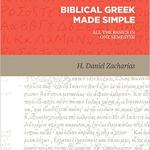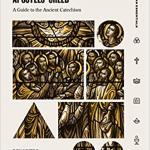At the conclusion of the Extraordinary Jubilee of Mercy, I proposed setting aside “a Sunday given over entirely to the word of God, so as to appreciate the inexhaustible riches contained in that constant dialogue between the Lord and his people” (Misericordia et Misera, 7). Devoting a specific Sunday of the liturgical year to the word of God can enable the Church to experience anew how the risen Lord opens up for us the treasury of his word and enables us to proclaim its unfathomable riches before the world. Here, we are reminded of the teaching of Saint Ephrem: “Who is able to understand, Lord, all the richness of even one of your words? There is more that eludes us than what we can understand. We are like the thirsty drinking from a fountain. Your word has as many aspects as the perspectives of those who study it. The Lord has coloured his word with diverse beauties, so that those who study it can contemplate what stirs them. He has hidden in his word all treasures, so that each of us may find a richness in what he or she contemplates” (Commentary on the Diatessaron, 1, 18).
With this Letter, I wish to respond to the many requests I have received from the people of God that the entire Church celebrate, in unity of purpose, a Sunday of the Word of God. It is now common for the Christian community to set aside moments to reflect on the great importance of the word of God for everyday living. The various local Churches have undertaken a wealth of initiatives to make the sacred Scripture more accessible to believers, to increase their gratitude for so great a gift, and to help them to strive daily to embody and bear witness to its teachings.
The Second Vatican Council gave great impulse to the rediscovery of the word of God, thanks to its Dogmatic Constitution Dei Verbum, a document that deserves to be read and appropriated ever anew. The Constitution clearly expounds the nature of sacred Scripture, its transmission from generation to generation (Chapter II), its divine inspiration (Chapter III) embracing the Old and New Testaments (Chapters IV and V), and the importance of Scripture for the life of the Church (Chapter VI). To advance this teaching, Pope Benedict XVI convoked an Assembly of the Synod of Bishops in 2008 on “The Word of God in the Life and Mission of the Church”, and then issued the Apostolic Exhortation Verbum Domini, whose teaching remains fundamental for our communities.[1] That document emphasizes in particular the performative character of the Word of God, especially in the context of the liturgy, in which its distinctively sacramental character comes to the fore.[2]
It is fitting, then that the life of our people be constantly marked by this decisive relationship with the living word that the Lord never tires of speaking to his Bride, that she may grow in love and faithful witness.
These words contain a great teaching. The Bible cannot be just the heritage of some, much less a collection of books for the benefit of a privileged few. It belongs above all to those called to hear its message and to recognize themselves in its words. At times, there can be a tendency to monopolize the sacred text by restricting it to certain circles or to select groups. It cannot be that way. The Bible is the book of the Lord’s people, who, in listening to it, move from dispersion and division towards unity. The word of God unites believers and makes them one people.For many of our faithful, in fact, this is the only opportunity they have to grasp the beauty of God’s word and to see it applied to their daily lives. Consequently, sufficient time must be devoted to the preparation of the homily. A commentary on the sacred readings cannot be improvised. Those of us who are preachers should not give long, pedantic homilies or wander off into unrelated topics. When we take time to pray and meditate on the sacred text, we can speak from the heart and thus reach the hearts of those who hear us, conveying what is essential and capable of bearing fruit. May we never tire of devoting time and prayer to Scripture, so that it may be received “not as a human word but as what it really is, the word of God” (1 Thess 2:13).












